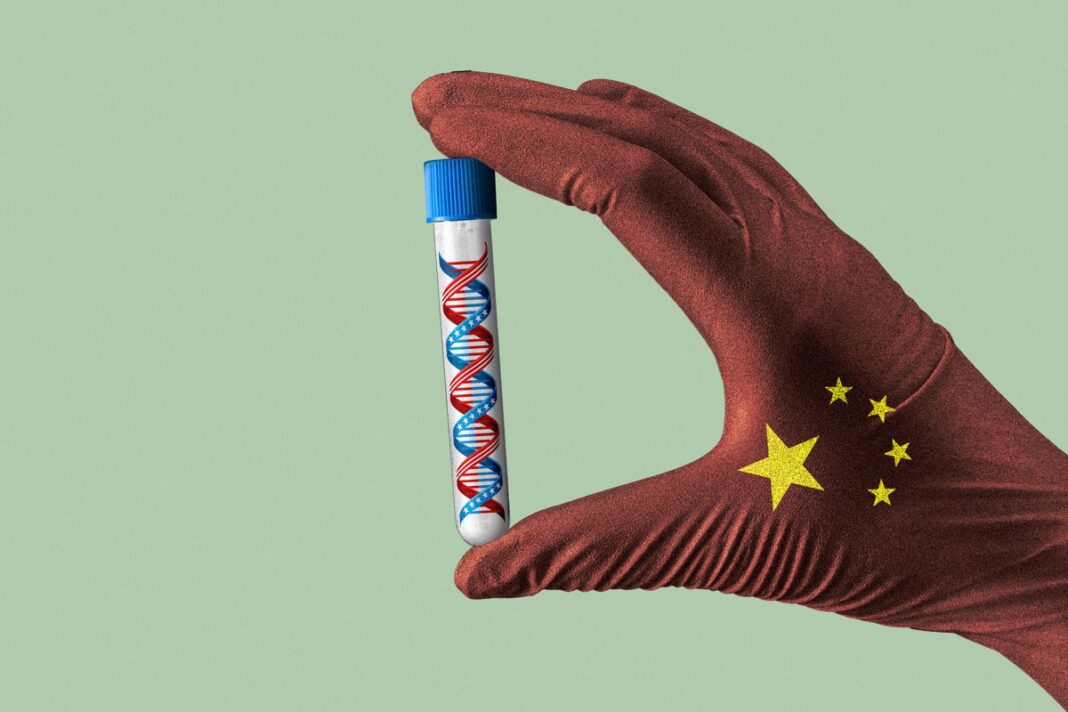As concerns grow about biotech advancements that would allow for Americans’ DNA to be weaponized, many states are enacting protection laws.
China has aggressively collected Americans’ genetic information for years, and coupled with biotechnology advances, national security concerns have grown. Multiple states are now taking action to protect DNA data.
“You can actually take someone’s DNA, take their medical profile, and you can target a biological weapon that will kill that person or take them off the battlefield or make them inoperable,” Rep. Jason Crow (D-Colo.), a member of the House Intelligence Committee, said during the 2022 Aspen Security Forum.
“There are now weapons under development, and developed, that are designed to target specific people.”
One fear is that the DNA gathered by consumer genetic testing companies routinely used by Americans to trace ancestry or find relatives could fall into the wrong hands. In 2023, a hacker exposed the genetic data of about 7 million users of 23andMe.
When the company announced on March 23 that it had filed for Chapter 11 bankruptcy, some privacy experts advised consumers to delete their data—a service that the company says it has always offered consumers.
“What we’re witnessing with 23andMe is a stark wakeup call for data privacy,” said Adrianus Warmenhoven, a cybersecurity expert at NordVPN. “Genetic data isn’t just a bit of personal information—it is a blueprint of your entire biological profile. When a company goes under, this personal data is an asset to be sold with potentially far-reaching consequences.”
And while more Americans use consumer DNA testing services, lawmakers on Capitol Hill have been unable to advance bills to prevent foreign adversaries from collecting genetic information from U.S. citizens, despite bipartisan support.
Most of the legislation to protect DNA is occurring at the state level.
As of November 2024, 13 states have enacted laws regulating direct-to-consumer genetic testing and ensuring that consumers have the power to protect their DNA. They are: Alabama, Arizona, California, Florida, Kentucky, Maryland, Montana, Nebraska, Tennessee, Texas, Utah, Virginia, and Wyoming.
At least 11 states—Arizona, Utah, Nebraska, Tennessee, Kansas, Montana, Arkansas, Texas, Louisiana, West Virginia, and Rhode Island—introduced bills this spring to block China and other adversaries from gaining access to genetic data through sequencing equipment and software and to forbid DNA information from being stored overseas.
Read Full Article on TheEpochTimes.com






